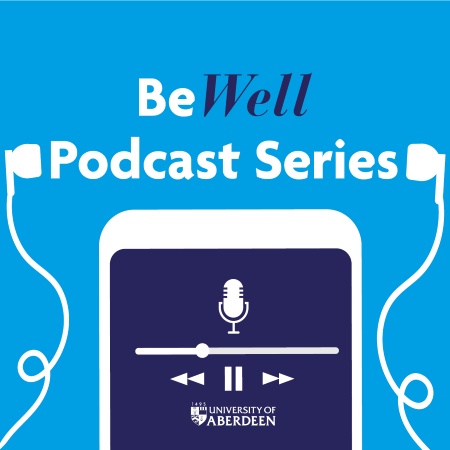
LGBTQ+ Mental Health in Education (Series 1 Episode 7)
Impact that inclusion or acceptance has on mental health, perceptions of LGBTQI+ community, breaking the stigma and creating a more inclusive campus, advice and resources to support others.

Pride is a month dedicated to celebrating LGBTQ+ communities all around the world. It is a month, normally in June, about acceptance, equality and raising-awareness of issues affecting the LGBTQ+ community.
Building on our foundational purpose to be open to all and dedicated to the pursuit of truth in the service of others, the University of Aberdeen is proud to host events and activities in support of Pride and in celebration of the diversity of our community.
The events and activities detailed below are open to all staff and students, as well as their family and friends.
Our commitment to inclusion will guide our education, our research, and the projects we deliver. We aspire to lead our sector in promoting health and wellbeing, and celebrating diversity. Aberdeen 2040 strategy
A selection of Equality and Diversity Skills Boosters eLearning courses available to university staff.
A course comprising of 60 minutes of in-depth training with films, learner notes and quiz.
Course description:
Inclusion means different things to different people and is sometimes confused with added business burdens and positive discrimination. Yet at its heart, inclusion is fundamentally about making sure that everyone has the same opportunities to achieve in life without being held back by factors such as their ethnicity, age or gender or whether they have a disability. This course simplifies inclusion issues and provides a practical introduction to the key principles for promoting equality in the workplace.
Course objectives:
A micro course comprising of a short film split into 4 easily digestible sections with learner notes and quiz.
Course description:
Sexual orientation can be a key aspect of a person's identity. It can determine not only who someone might be attracted to and be in a relationship with, but also how they see and engage with the world, and how the world engages with them. Although there have been many changes in the law and in society's attitude towards sexual minorities, such as legalising same-sex marriage, and the recognition of same-sex parents, there are still many barriers and challenges that sexual minorities face. Acts of homophobia and biphobia are common, and indeed being gay, lesbian or bisexual is still illegal in many parts of the world.
Course objectives:
A micro course comprising of 4 easily digestible sections with learner notes and quiz.
Course description:
It's estimated that around 4% of the population in Europe and the US could be transgender, non-binary or gender non-conforming. Many trans and non-binary people encounter inappropriate behaviour and a lack of understanding and respect, both at work and in society. This course provides a unique look at what it's like to be trans and non-binary in today's society.
Course objectives:
A micro course comprising of 4 easily digestible sections with learner notes and quiz.
Course description:
Knowing how to support your trans and non-binary staff and create a respectful and safe environment for them is key to promoting their own personal well-being and ensuring that your organisation manages to harness and nurture the very best talent. This course provides an essential toolkit for managers in managing and supporting trans and non-binary staff.
Course objectives: